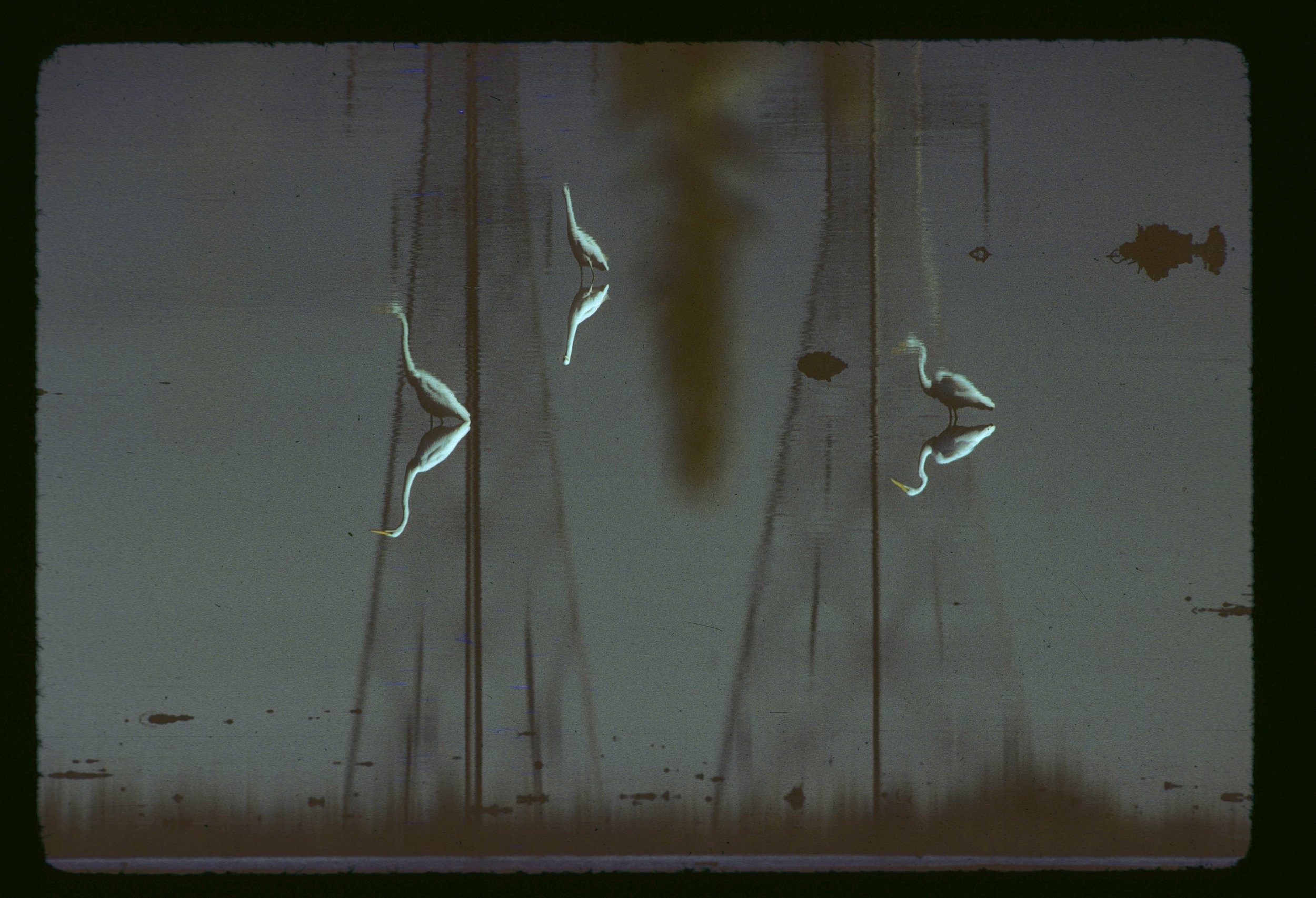Mosquitoes
1979
The canoe went into the Kearny marsh with the help of my muddy leg. Don Smith looked at me and laughed. A veteran would have known how to push off, one leg in the canoe, body center low. Not me. We had parked behind the ballfield, unloaded the canoe, and went, unerringly through the green phrags of summer to the water's edge. What made this particular marsh marsh was probably a crushed pipe. Maybe there wasn't one cause, but a pileup of coincident. The track bed, the roads, the partial landfill, an obstruction, one too many infalls without enough outfalls.
When you glide through the marsh and come upon the next mosquito ditch, a world opens up. If you are quiet, you might be able to sneak up on egrets or heron. If you're not, you'll hear the sound of their wings breaking the air as they rise with grace, dancing on water. If you come upon ducks or geese, you'll be treated to the comedy of quacks and honks, webbed feet slapping on the water runway. A mosquito ditch is straight as an arrow and makes for a fine flight path.
The mosquito was the curse and the ditch was the cure. Drain those backwater reaches! And so in the 1920s the great ribbons of marsh were cut out to the river. Folly or genius? The tide reached back even further and up and down with the moon. Wet pockets, perfect for larvae to rest and hatch, away from the hungry Killies. Was it better or worse? Later, the Bergen County Mosquito Commission sprayed the meadows from helicopter.
The mosquito lives.
Dig a ditch in the peaty muck by barge and crane. Heap it on the side. It is there today, in the unnatural rise of the banks, where no tide reaches and phragmites reign. Phagmites communis, common reed, an invader, a usurper, pushing out the Spartina without mercy.
But oh, the vistas from the channels free from growth. A pair of ducks and their young. A heron gulping a catch. The surprise of a new view. A glimpse of the Empire State.
Thank you mosquitoes.
